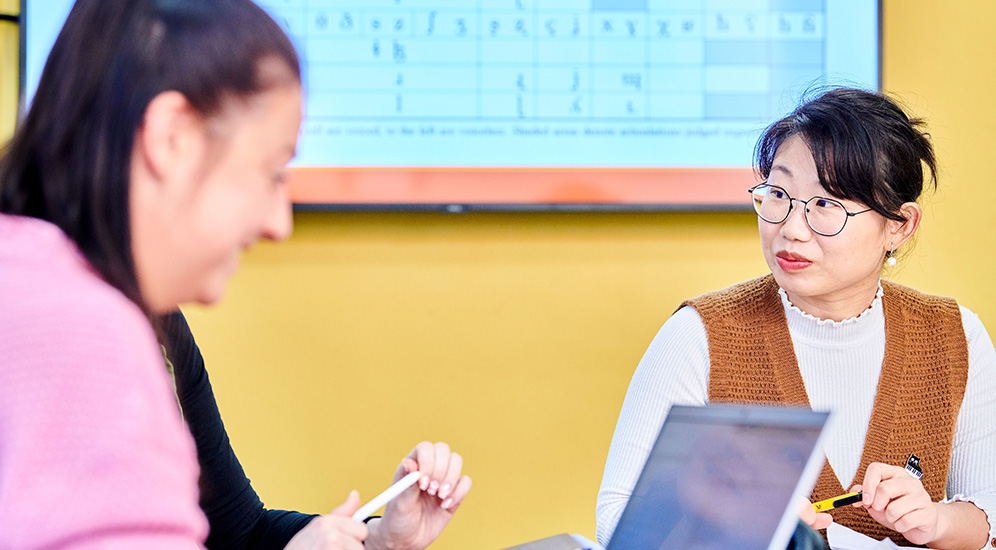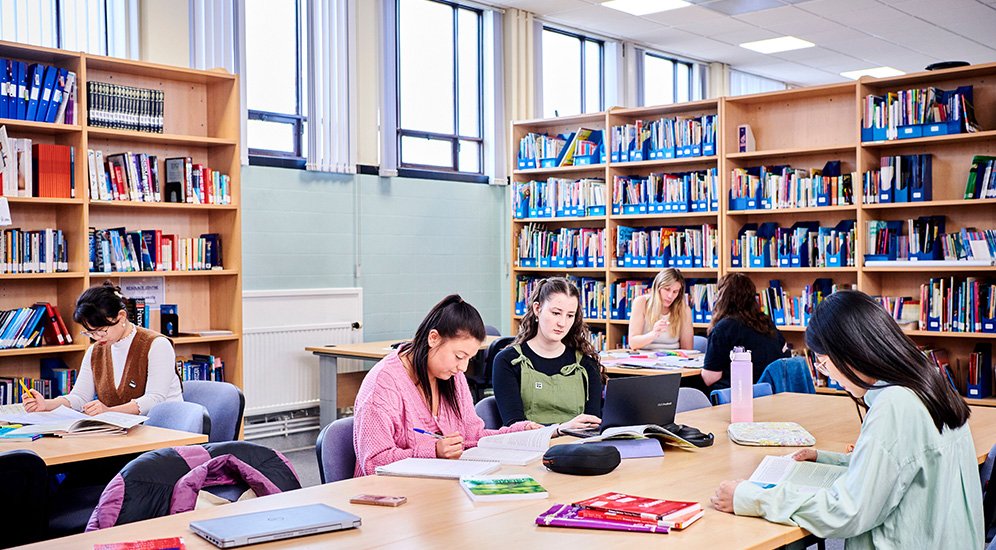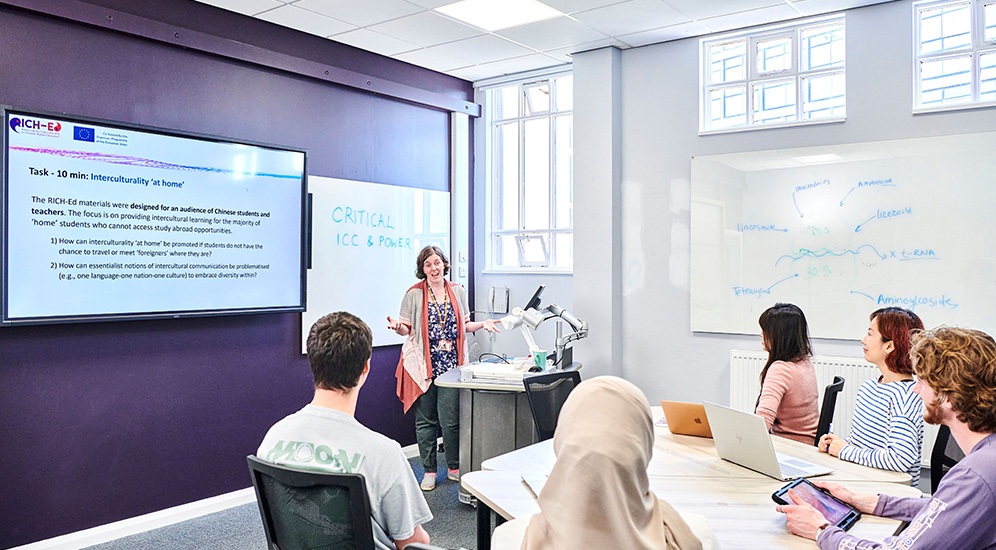International Development and Education with Cross Cultural Communication MA
Explore how education and communication can drive global change - gain the skills to lead in international development across cultures.
You are currently viewing course information for entry year:
Start date(s):
- September 2026
Overview
Deepen your understanding of international development, cross-cultural communication, entrepreneurship, and education. Our Master's in International Development and Education with Cross-Cultural Communication takes a multidisciplinary approach. You will examine global change through different perspectives, including:
- social
- political
- historical
- environmental
- economic
The program equips you with skills to tackle complex global challenges. It prepares you to work effectively across diverse cultural and educational contexts.
The Sustainable Development Goals (SDGs) run through the modules. This helps you understand where the world is today in working toward a better future for people and the planet by 2030. You will also explore current debates about how education contributes to the development process.
On this MA you’ll:
- learn through case studies to think critically about development issues
- explore data from secondary sources
- do your own research through a unique placement module. This hands-on experience lets you apply your learning in real development and education settings. This will allow you to work on creating positive change
Important information
We've highlighted important information about your course. Please take note of any deadlines.
Please rest assured we make all reasonable efforts to provide you with the programmes, services and facilities described. However, it may be necessary to make changes due to significant disruption, for example in response to Covid-19.
View our Academic experience page, which gives information about your Newcastle University study experience for the academic year 2025-26.
See our terms and conditions and student complaints information, which gives details of circumstances that may lead to changes to programmes, modules or University services.
What you'll learn
You'll develop an awareness of the role of government and markets in education. You'll also explore the links between communication, culture and cultural identification.
Modules
You will study modules on this course. A module is a unit of a course with its own approved aims and outcomes and assessment methods.
The module information below is intended to provide an example of what you will study.
Our teaching is informed by research. Course content changes periodically to reflect developments in the discipline, the requirements of external bodies and partners, and student feedback.
Full details of the modules on offer will be published through the Programme Regulations and Specifications ahead of each academic year. This usually happens in May.
To find out more please see our terms and conditions.
Optional modules availability
Some courses have optional modules. Student demand for optional modules may affect availability.
| Compulsory Modules | Credits |
|---|---|
| Introduction to Intercultural Communication | 20 |
| Research Strategies and Methods | 20 |
| Placement Module | 40 |
| Dissertation: International Development and Education | 60 |
| Optional Modules | Credits |
|---|---|
| The Social Psychology of Communication | 20 |
| English in the World | 20 |
| Multilingualism | 20 |
| The Future of Learning in the Digital Age | 20 |
| International Development: Theory and Practice | 20 |
How you'll learn
Depending on your modules, you'll be assessed through a combination of:
- Design or creative project
- Dissertation
- Essay
- Professional skills assessments
- Oral presentation
- Portfolio
- Reflective log
- Research proposal
Throughout your studies, you’ll have access to support from:
- academic staff
- personal tutors and research supervisors
- our University Student Services Team
- student representatives
- peers
You'll also be assigned an academic member of staff, who will be your personal tutor throughout your time with us. They can help with academic and personal issues.
Your teaching and learning is also supported by Canvas. Canvas is a Virtual Learning Environment. You'll use Canvas to submit your assignments and access your:
- module handbooks
- course materials
- groups
- course announcements and notifications
- written feedback
You'll get the opportunity to study with our world-class academics, including:
Your development
Placements
The two to four-week placement module offers an exciting opportunity to visit a country in the Global South (Africa, Asia and Latin America).
We're currently working with local charities and NGOs, Coco and Emerging Leaders to offer exciting placements in Tanzania and Kenya. We also offer placements in schools with our contacts at Avasar Academy in India. The self-funded visit provides an invaluable experience that will bring issues learnt on the course to life.
The placement module can also be taken in the UK, across, Europe, as a virtual placement, or in your country of origin, with the agreement of the Degree Programme Director.
Quality and ranking
All professional accreditations are reviewed regularly by their professional body
If you’re studying an accredited degree and thinking about working in Europe after you graduate, the best place to find current information is the UK Government’s guidance on recognition of UK professional qualifications in EU member states. This official resource explains whether your profession is regulated in another country, what steps you need to take, and which organisation you should contact.
Facilities
As a student in the School of Education, Communication and Language Sciences, you'll have access to facilities and a growing collection of online resources, including:
- a well-stocked Education Resource Centre
- Language Analysis Lab
- a phonetics lab
- an audio-video lab
- a recording studio
You will have access to a range of IT systems and software and library resources (including electronic journals and databases).
Newcastle University Library is an award-winning service consisting of four buildings on campus and one off-campus facility, home to over 0.8 million print books, over 0.7 million e-books and over 54,000 e-journal titles.
The library also has study spaces, a postgraduate study rooms, computer clusters, media room and café.
Fees, Funding and Scholarships
Tuition fees for 2026 entry (per year)
As a general principle, you should expect the tuition fee to increase in each subsequent academic year of your course, subject to government regulations on fee increases and in line with inflation.
Depending on your residency history, if you’re a student from the EU, other EEA or a Swiss national, with settled or pre-settled status under the EU Settlement Scheme, you’ll normally pay the ‘Home’ tuition fee rate and may be eligible for Student Finance England support.
EU students without settled or pre-settled status will normally be charged fees at the ‘International’ rate and will not be eligible for Student Finance England support. You may be eligible for a scholarship worth 25% off the international fee. Search our funding database.
If you are unsure of your fee status, check out the latest guidance here.
Scholarships
We support our EU and international students by providing a generous range of Vice-Chancellor's automatic and merit-based scholarships. See our searchable postgraduate funding page for more information.
What you're paying for
Tuition fees include the costs of:
- matriculation
- registration
- tuition (or supervision)
- library access
- examination
- re-examination
- graduation
Find out more about:
If you are an international student or a student from the EU, EEA or Switzerland and you need a visa to study in the UK, you may have to pay a deposit.
You can check this in the How to apply section.
If you're applying for funding, always check the funding application deadline. This deadline may be earlier than the application deadline for your course.
For some funding schemes, you need to have received an offer of a place on a course before you can apply for the funding.
Search for funding and scholarships
Find funding available for your course
Entry requirements
The entrance requirements below apply to 2026 entry.
Qualifications from outside the UK
English Language requirements
Admissions policy
This policy applies to all undergraduate and postgraduate admissions at Newcastle University. It is intended to provide information about our admissions policies and procedures to applicants and potential applicants, to their advisors and family members, and to staff of the University.
University Admissions Policy and related policies and procedures
Credit transfer and Recognition of Prior Learning
Recognition of Prior Learning (RPL) can allow you to convert existing relevant university-level knowledge, skills and experience into credits towards a qualification. Find out more about the RPL policy which may apply to this course
How to apply
Using the application portal
The application portal has instructions to guide you through your application. It will tell you what documents you need and how to upload them.
You can choose to start your application, save your details and come back to complete it later.
If you’re ready, you can select Apply Online and you’ll be taken directly to the application portal.
Alternatively you can find out more about applying on our applications and offers pages.
Apply Online
Open days and events
Find out about how you can visit Newcastle in person and virtually
Overseas events
We regularly travel overseas to meet with students interested in studying at Newcastle University.
Get in touch
Questions about this course?
If you have specific questions about this course you can contact:
Dr Steve Humble MBE
Degree Programme Director
School of Education, Communication and Language Sciences
Telephone: +44 (0)191 208 5047
Email: steve.humble@newcastle.ac.uk
General enquiries
For more general enquiries, you could also complete our online enquiry form.
Application enquiries
If you've got a question about your application, send us an enquiry via the application portal you applied through.
If you haven't applied yet, you can send your questions via our enquiry form.
Live chat
Our Ncl chatbot might be able to give you an answer straight away. If not, it’ll direct you to someone who can help.
You'll find our Ncl chatbot in the bottom right of this page.
Chat to our students
Choosing a university is a big decision. If you've got questions about a particular course, student life or the city of Newcastle, why not chat to our friendly students or graduates!
Keep updated
We regularly send email updates and extra information about the University.
Receive regular updates by email
Social Media
Get involved with the School of Education, Communication and Language Sciences.



